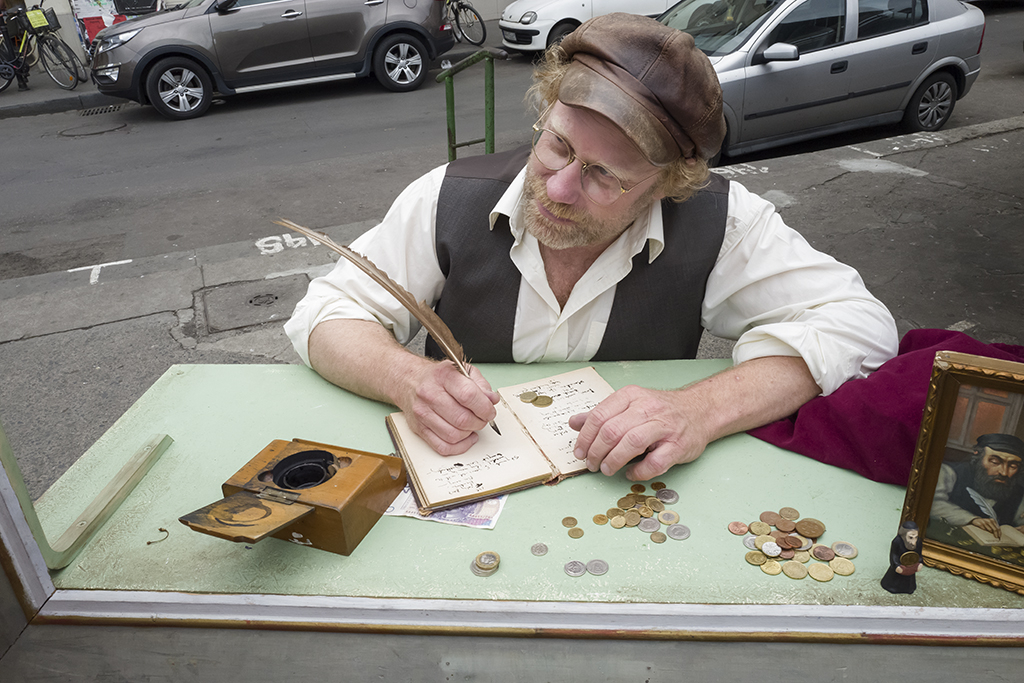
Conceived by Michael Rubenfeld and developed with Magda Rubenfeld Koralewska and Jason Francisco, Lucky Jew is a performance that takes a common object of Polish folk culture and turns it on its head. The term “Lucky Jews” refers to figurines and small paintings of Jews with gold coins that are sometimes sold in Poland as good luck charms. While some people also see them as remembrances of Poland’s pre-war Jewish communities, for many people they are simply anti-Semitic caricatures. (For more information about the objects and their history, visit cultural anthropologist Erica Lehrer's online exhibition.) Lucky Jew engages with the cultural complications of these objects by bringing a Lucky Jew to life in the public spaces of the city. The performance, at once sincere and satirical, has inspired all manner of reactions—from ebullient praise to downright contempt. It has been called anti-Semitic, anti-Polish, brilliant, stupid, and ridiculous. We hope the performance is an invitation to conversation: about the cultural practice, "positive stereotypes," images of Jews in Poland, and the complicated nature of luck.
Below are some interviews the performers of Lucky Jew have given about their experience of the piece.
- Michael Rubenfeld and Adam Schorin discuss the piece with Jenny Friedland on NPR's Worldview.
- Graham Isidor writes about the performance and includes an interview with the performance for Vice.
- Jason Francisco writes about the first edition of the performance, from 2017.


